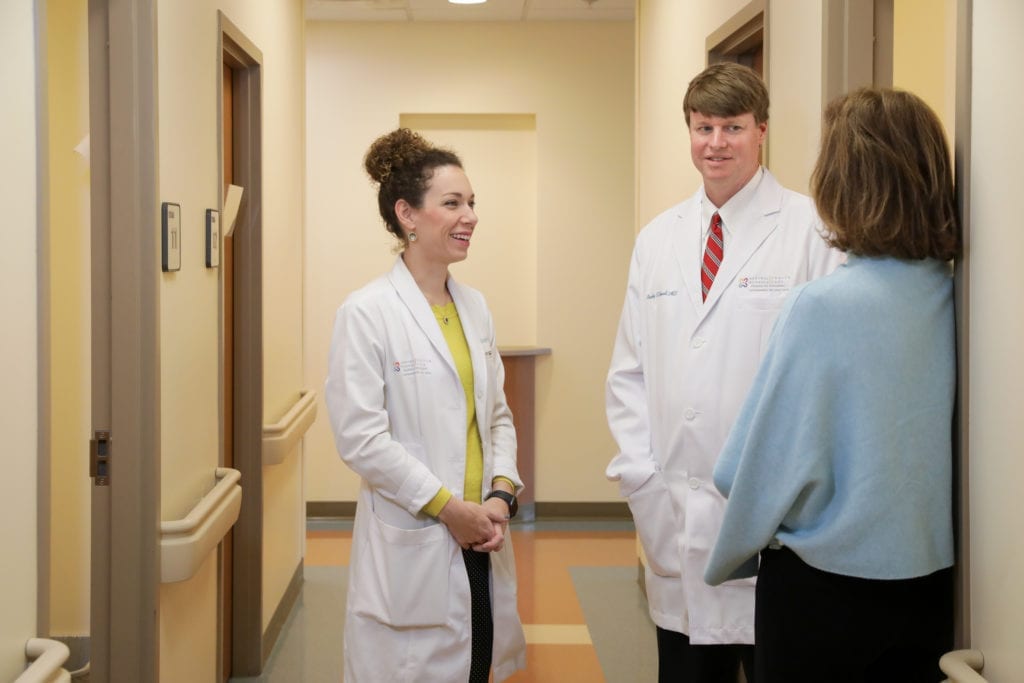Prostate Cancer What is Prostate Cancer?



What is Prostate Cancer?
Prostate cancer is one of the most common cancers among men; approximately one in nine men will be diagnosed with prostate cancer during his lifetime. Prostate cancer is more likely to develop in older men (six in ten cases in men over 65) and in African American men.
Most prostate cancers grow slowly. About 90% of prostate cancers are found during screenings with annual PSA levels when the disease is only in the prostate and nearby organs. However, if the cancer grows quickly, it can spread to nearby lymph nodes and metastasize (spread) to other parts of the body, most often to the bones.
Symptoms of Prostate Cancer:
The symptoms and signs of prostate cancer may include:
- Frequent urination
- Weak or interrupted urine flow or the need to strain to empty the bladder
- The urge to urinate frequently at night
- Blood in the urine
- Blood in the seminal fluid
- New onset of erectile dysfunction
- Pain or burning during urination, which is much less common
- Discomfort or pain when sitting, caused by an enlarged prostate.
Other noncancerous conditions of the prostate, such as benign prostatic hyperplasia (BPH) or an enlarged prostate, can cause similar symptoms. Or, the cause of a symptom may be a different medical condition that is also not related to the prostate. Urinary symptoms also can be caused by an infection of the bladder or other conditions.
If cancer has spread outside of the prostate gland, a man may experience:
- Pain in the back, hips, thighs, shoulders, or other bones
- Swelling or fluid buildup in the legs or feet
- Unexplained weight loss
- Fatigue
- Change in bowel habits.
Types of Prostate Cancer Types of Prostate Cancer
Almost all prostate cancers are adenocarcinomas which develop from the gland cells (the cells that make the prostate fluid which is added to semen). Other rare types of prostate cancers are:
Small Cell Carcinomas
Neuroendocrine Tumors (Other Than Small Cell Carcinomas)
Transitional Cell Carcinomas
Sarcomas.
Second opinion Understanding Your Condition with a Second Opinion
Getting a second opinion means asking another physician to review all your medical reports and test results, give an opinion about your diagnosis and how it should be treated. CGCC is often asked for second opinions about a patient’s cancer diagnosis.
Second Opinion?
“Less than 20% of prostate cancers metastasize or spread beyond the prostate. Once the prostate tumor cells travel through the lymphatic system (or bloodstream) to other areas of the body, Central Georgia Cancer Care works closely with community urologists to treat the disease. Hormone therapy can be used in advanced (metastatic) prostate cancer to shrink the cancer and slow the growth of tumors, which may help relieve signs and symptoms.” – Bradley T. Sumrall, M.D.
Questions Questions For Your Doctor
As your partners for health, CGCC wants to help you make informed decisions about your health care. Please feel free to ask any question you may have, even those beyond the list that follows. It may also be helpful to bring someone along to your appointments to take notes.
- What type of prostate cancer do I have? How aggressive is it?
- Can you explain my pathology report and laboratory results to me?
- What is the stage, Gleason score, and risk group of the prostate cancer? What does this mean?
- Would you explain my prostate cancer treatment options?
- What clinical trials are available for me? Where are they located, and how do I find out more about them?
- What treatment plan do you recommend? Why?
- What is the goal of each treatment? Is it to eliminate the cancer, help me feel better, or both?
- Who will be part of my treatment team, and what does each member do?
- How will this treatment affect my daily life? Will I be able to work, exercise, and perform my usual activities?
- Will this treatment affect my sex life? If so, how and for how long?
- Will this treatment affect my ability to have children?
- What other long-term side effects may be associated with my cancer treatment?
- If I’m worried about managing the costs of cancer care, who can help me?
- If I have a question or problem, who should I call?

“Cancer can bring up a lot of issues. It’s important to find a doctor who goes beyond easy answers to search for the very best care options. I am blessed to be a patient of Dr. Sumrall.” – Warner Robins Patient

